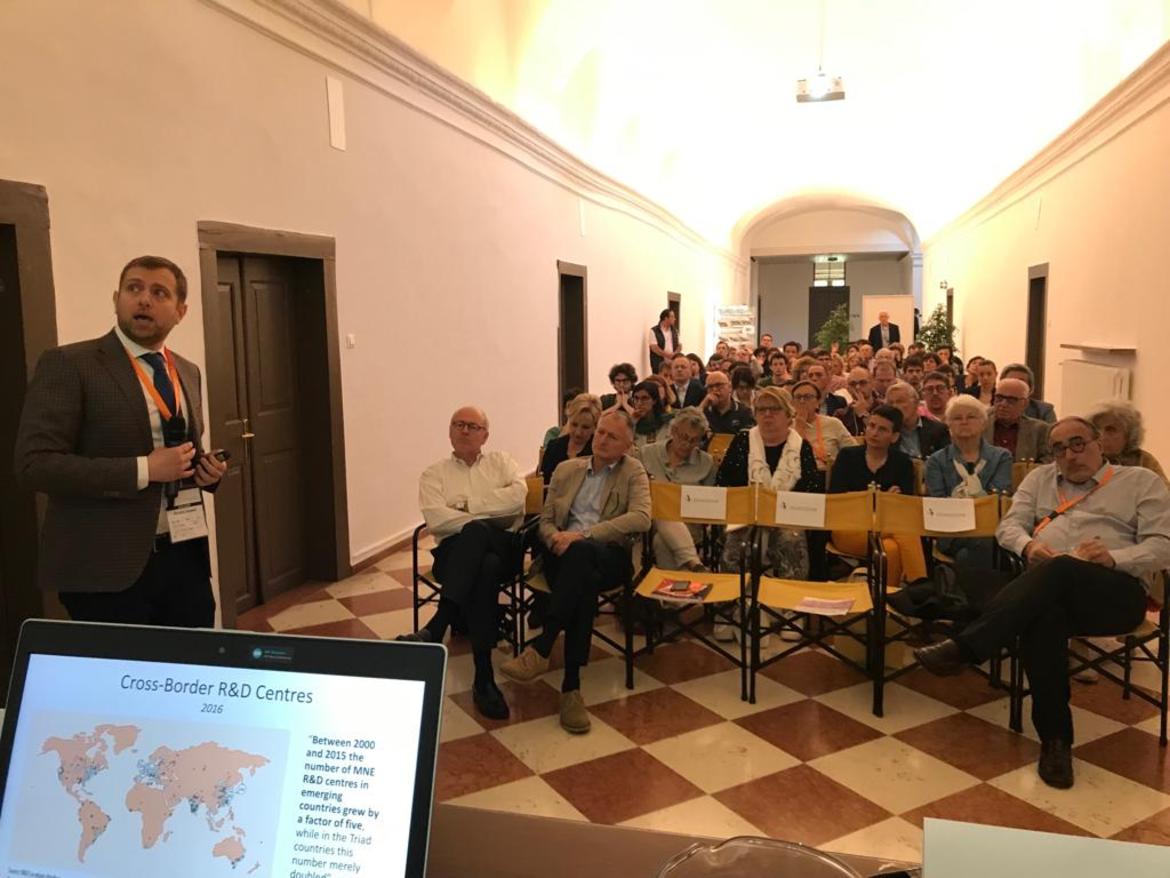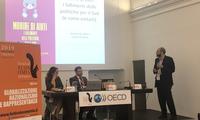
Are local development policies in Italy effective? How do we know if the objectives of the public aid were achieved? Were there any negative side effects of the policies?
These are some of the questions that Antonio Accetturo, an author of the book Dying of aid. The failures of policies for the South of Italy (and how to avoid them), and Riccardo Crescenzi, professor at the London School of Economics, have tried to answer during the session moderated by Alessandra Proto, the Head of the OECD Trento Centre.
In the last twenty-five years, the availability of new data on the one hand and more advanced research methods on the other, have made it possible to develop more efficient tools for measuring the impacts of public aid in certain areas. Our ability to verify (using rigorous statistical methodologies) whether monetary transfers actually contributed to improving the situations of depressed areas, allows to draw some conclusions. We are in a better position to answer the questions whether the book’s statement "of aid you die" is true or why some cities and regions join the exclusive ‘world innovation club’ while others remain persistently excluded.
The speakers talked about the best public policies that can bridge the gap between innovative and non-innovative territories. A strong link between slow diffusion of technology and knowledge across and within territories and the resulting low ability of a territory to tap into global knowledge flows and to utilise them for increased productivity growth and innovation opportunities was highlighted. However, it should be noted that "the top tech giants have little impact on the territory in which they operate because they rarely hire local staff and hardly pass on their knowledge to domestic companies, with which they seldom establish commercial relations", recalls Crescenzi.
Drawing on economic theories and empirical research, Accetturo and Crescenzi presented a series of examples on how to facilitate access to global knowledge pipelines and to take advantage of an increasingly globalised world. Based on these examples, the speakers suggested types of policies that can reduce territorial gaps that seem to be growing today. "The recent improvements in structural modelling can support identifying the best policies to be adopted," warns Accetturo, those policies that to date "didn’t taken into account the economic context, treating symptoms instead of the cause, obtaining general equilibrium effects ".
Website: https://2019.festivaleconomia.eu
Twitter: https://twitter.com/economicsfest
Facebook: https://www.facebook.com/festivaleconomiatrento
Instagram: https://www.instagram.com/festivaleconomia











